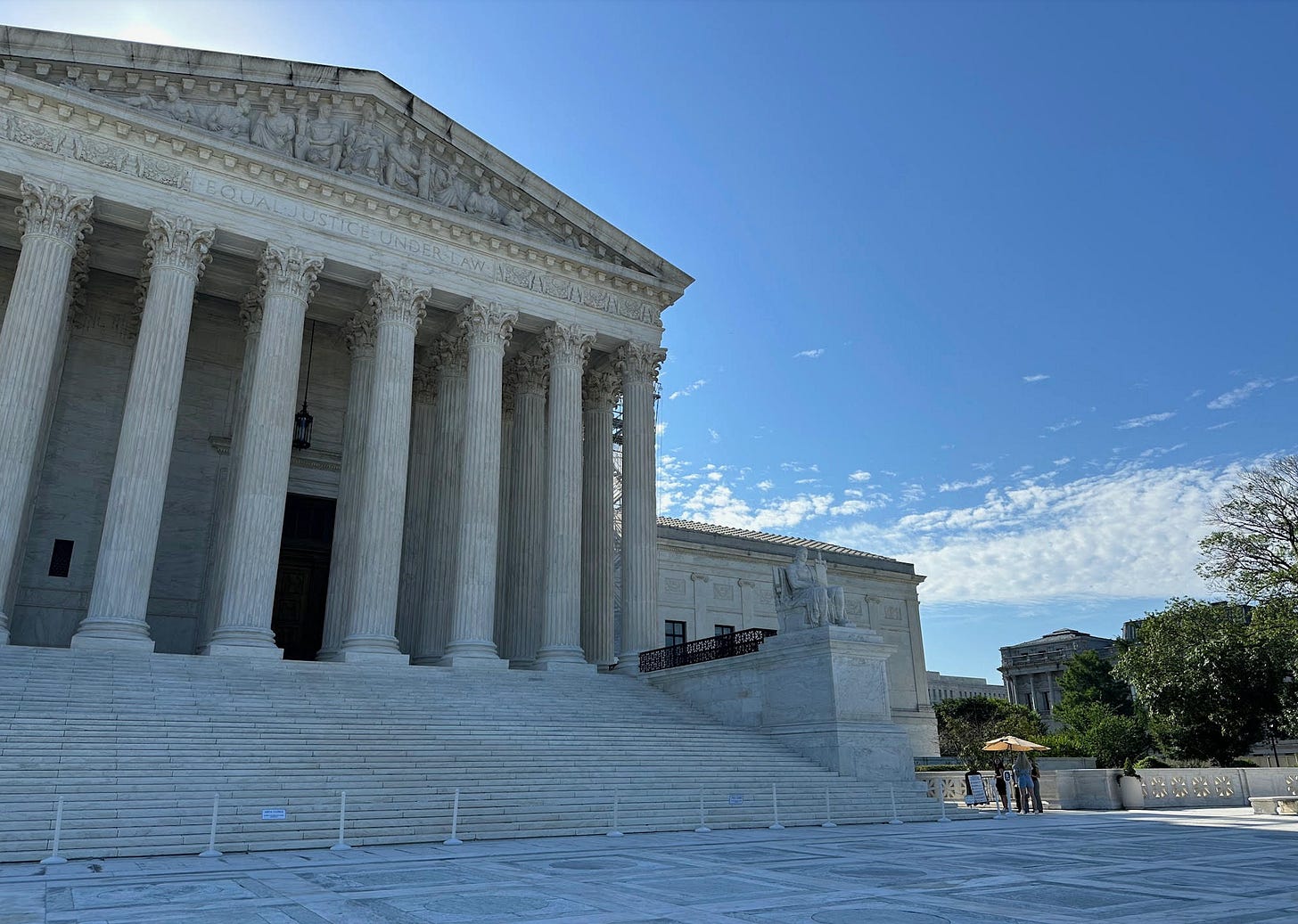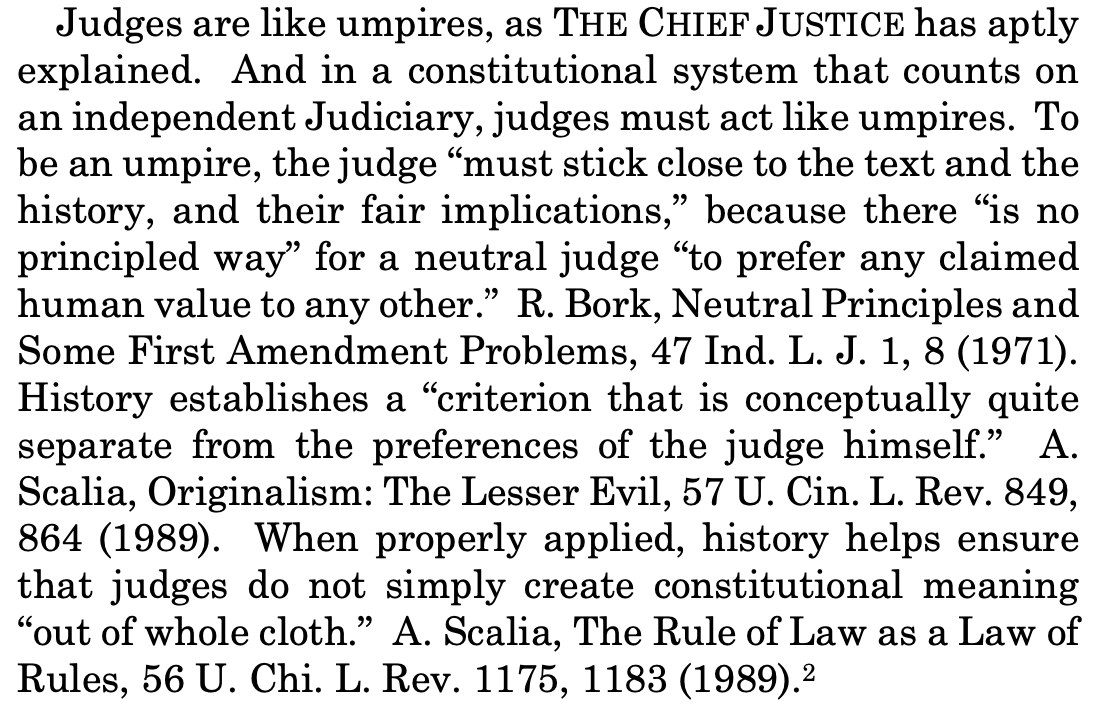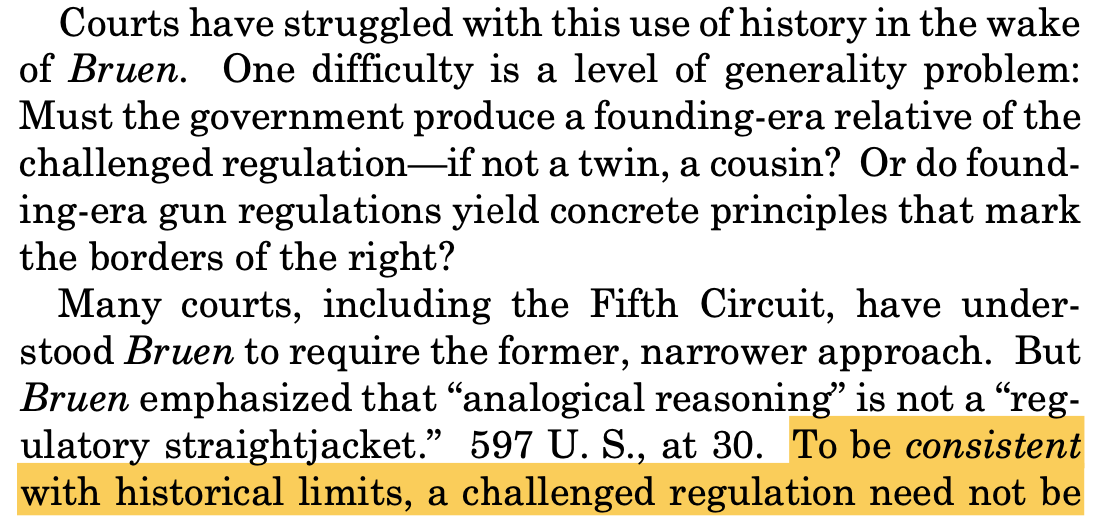What the justices are writing about when they write about Rahimi
The decision took a long time because seven justices wrote. An 8-1 ruling in favor of a gun restriction, but strong disagreements about the future — and the past.
On Friday, the U.S. Supreme Court upheld the federal ban on firearm possession by a person with a domestic violence order out against them.
Only Justice Clarence Thomas dissented from Chief Justice John Roberts’s decision for the court in United States v. Rahimi. What’s more, every justice in the majority joined Roberts’s succinct, 18-page opinion rejecting Zackey Rahimi’s facial challenge to Section 922(g)(8) as a violation of the Second Amendment.
The decision was a not-so-subtle scaling-back of Thomas’s 2022 decision in New York State Rifle and Pistol Association v. Bruen, despite that Roberts insisted Friday’s decision was only clarifying Bruen in light of the fact that, as he put it, “some courts have misunderstood the methodology of our recent Second Amendment cases.”
OK, Chief.
So, what did they conclude? As Roberts explained:
Again, everyone except Thomas agreed with that. Thomas, instead, insisted Bruen made “clear” that his one-justice dissent on Friday was correct.
Given his authorship of Bruen, his dissent on Friday is honestly the strongest evidence that Friday’s decision was, indeed, a pulling back from Bruen.
Beneath Roberts’s opinion presenting a united front against Thomas’s thinking, though, every justice in the majority, save for Justice Sam Alito, also wrote separately or joined one of the 49 pages of concurring opinions.
So, what was that about?
Justice Sonia Sotomayor, joined by Justice Elena Kagan, reiterated that “Bruen was wrongly decided,“ but wrote to highlight two main points. First, Sotomayor wrote, “Even under Bruen, this is an easy case.” Second, she — again, with Kagan — made perfectly clear that this was, indeed, a pull-back of Thomas’s vision for Bruen:
This was, in its way, Sotomayor picking up where now-retired Justice Stephen Breyer left off in his Bruen dissent for the trio-turned-duo.
And yet, the many opinions were in significant part a debate among the newer members of the court about the role of constitutional interpretation and the limits of originalism.
Justice Neil Gorsuch wrote what, I believe, is a sonnet to originalism.
Justice Brett Kavanaugh wrote a book report …
… about how much he loves Antonin Scalia.
Laying it out more directly than she already had through an opinion she joined and one partial concurrence she wrote earlier this term, Justice Amy Coney Barrett made clear that she has concerns with originalism — and particularly Thomas’s originalism in Bruen.
Justice Ketanji Brown Jackson, meanwhile, made explicit what was implicit in the majority opinion and suggested in Sotomayor and Barrett’s opinions:
In all, Friday’s ruling in United States v. Rahimi was clear. As with Thursday’s decisions, however, there remains much unresolved — but not unwritten here — for future gun cases and for the future of originalism.













![I write separately because we now have two years’ worth of post-Bruen cases under our belts, and the experiences of courts applying its history-and-tradition test should bear on our assessment of the workability of that legal standard. This case highlights the apparent difficulty faced by judges on the ground. Make no mistake: Today’s effort to clear up “misunderst[andings],” ante, at 7, is a tacit admission that lower courts are struggling. In my view, the blame may lie with us, not with them. I write separately because we now have two years’ worth of post-Bruen cases under our belts, and the experiences of courts applying its history-and-tradition test should bear on our assessment of the workability of that legal standard. This case highlights the apparent difficulty faced by judges on the ground. Make no mistake: Today’s effort to clear up “misunderst[andings],” ante, at 7, is a tacit admission that lower courts are struggling. In my view, the blame may lie with us, not with them.](https://substackcdn.com/image/fetch/$s_!0FWX!,w_1456,c_limit,f_auto,q_auto:good,fl_progressive:steep/https%3A%2F%2Fsubstack-post-media.s3.amazonaws.com%2Fpublic%2Fimages%2Ffb5f8eeb-bfd7-4b38-8925-cdb2a4e5d355_1096x432.png)
Roberts: I'll clean up the mess.
Sotomayor/Kagan: Okay, Chief. Shouldn't have made it in the first place, tbh
Gorsuch: Muses of Originalism, inspire me
Kavanaugh: Blah blah blah
Barrett: I'm okay with role playing originalism. If we do, we need to stick with the originals. Clarence tossed in some slipshod "history and tradition" stuff. Not my thing.
Jackson: Okay. It's wrong, but it's the law now. Fine. I concur. But, you know, to be real, it's a mess. We did it. Kinda shouldn't be blaming the victims.
Thomas: I meant what I said before, guys.
Alito (MIA for the last two days): I like the result here. It's a mess, really. But, not going to ruin it. So, I'm staying out of this, guys.
Lots of repeated "history" from the Republicans with an apparent move toward the middle by Barrett. Jackson had it right. Bad test, bad history, and Thomas makes it plain that he only likes his own history, not anything that might change his Wild West today approach.